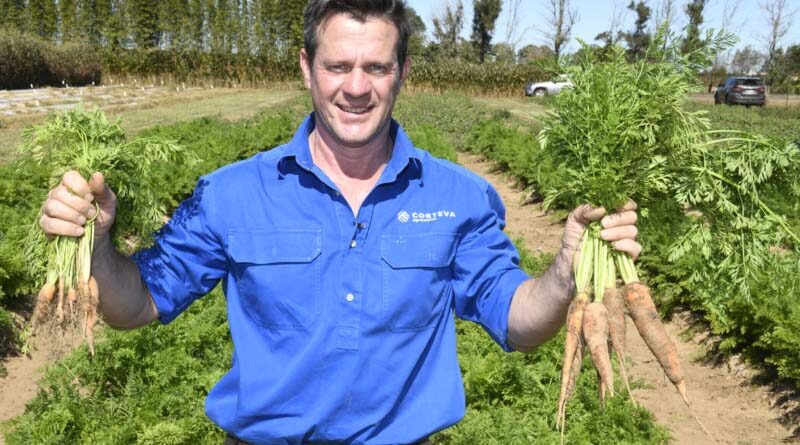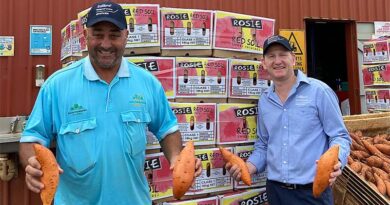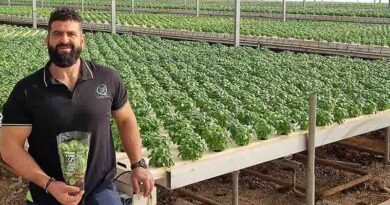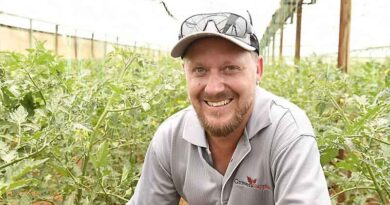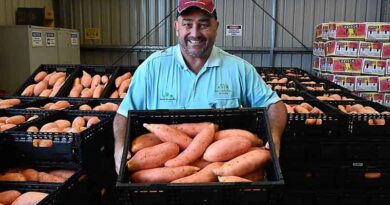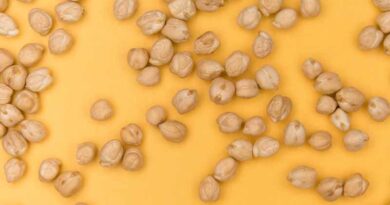Significant advantages for Australian growers from new nematicide
29 November 2021, Australia: Corteva agriscience Australia is pleased to announce the first global registration of Salibro® Reklemel® active nematicide.
Corteva agriscience Australia regulatory and policy manager, Greg Mitchell said that the Australian Pesticides and Veterinary Medicines Authority (APVMA) did a great job in meeting the regulatory timelines. Australian growers will be the first in the world to access and use Salibro to protect their crops.
Salibro is now approved for the control of root-knot nematode (Meloidogyne spp.) in root and tuber, cucurbit and fruiting vegetable crops. Salibro offers growers significant advantages over existing options.
A more sustainable control option
Corteva agriscience Salibro product manager, Dan Cornally, said nematode control options in the past have typically been quite disruptive to beneficial fauna contained in the soil.
“Nematode control can be very challenging, and many of the current options available to growers are not IPM friendly which results in significant disruption to soil beneficial organisms, they are also generally considered higher risk to growers and the environment,” he explained.
“Salibro is quite different. It is much lower risk to applicators and the environment. It is also a very effective nematicide that controls root-knot nematode and has negligible impact on the beneficial species that help suppress pests and diseases for healthier soil.”
Salibro has a unique mode of action and can be used at relatively low rates.
Salibro affects the co-ordination of the nematode, meaning they are unable to move, feed and infect plant roots within hours of treatment. Death will occur in a couple of days as nematodes cannot move or feed effectively.
Mode of action
In treated soils, parasitic nematodes hatch and juveniles are exposed to Salibro as they move in films of water within the soil in search of a host root. This exposure will result in control of these newly emerged juveniles.
Soil temperature does not have any impact on the performance of Salibro and effective control is observed both at low and high soil temperatures, for example: 4 to > 35 °C.
Salibro will typically provide root protection from 20 to 50 days so is an excellent option for growers needing effective robust control of root-knot nematodes.
Mr Cornally said Salibro offers excellent flexibility in terms of application timing and methods.
The approved use patterns are:
- At crop establishment through drip from three days before planting up to three days after transplanting depending on the crop.
- As a bed or furrow spray incorporated mechanically or with irrigation up to three days before planting.
- Split application through drip – applied at establishment and again 14 – 28 days after transplanting depending on the crop.
- Post plant drip as a top up treatment following another registered nematicide treatment.
“Salibro has been extensively tested across Australia since 2013, targeting important horticultural areas on a range of soil types and there has been no crop injury or significant impact on crop vigour throughout those trials,” Mr Cornally said.
One of the trials sites was in Bundaberg, Queensland, and included a planned trial of the new product in sweet potatoes, carrots and capsicums.
“This was a particularly useful trial as there were very high rates of nematodes in the soil and Salibro was compared to untreated plots and those treated with current industry nematicides,” Mr Cornally said.
“This trial demonstrated the excellent crop safety of Salibro and its ability to control nematodes to produce high yields of quality vegetables.”
In the carrot trial at the site, the untreated section produced very small and deformed vegetables whereas the Salibro plot had large quality carrots.
Mr Cornally said the advantages of Salibro over current nematicides were evident and would be welcomed by growers in the coming season.
“This product has application flexibility and will help growers produce consistent, quality vegetables while looking after their soil.

